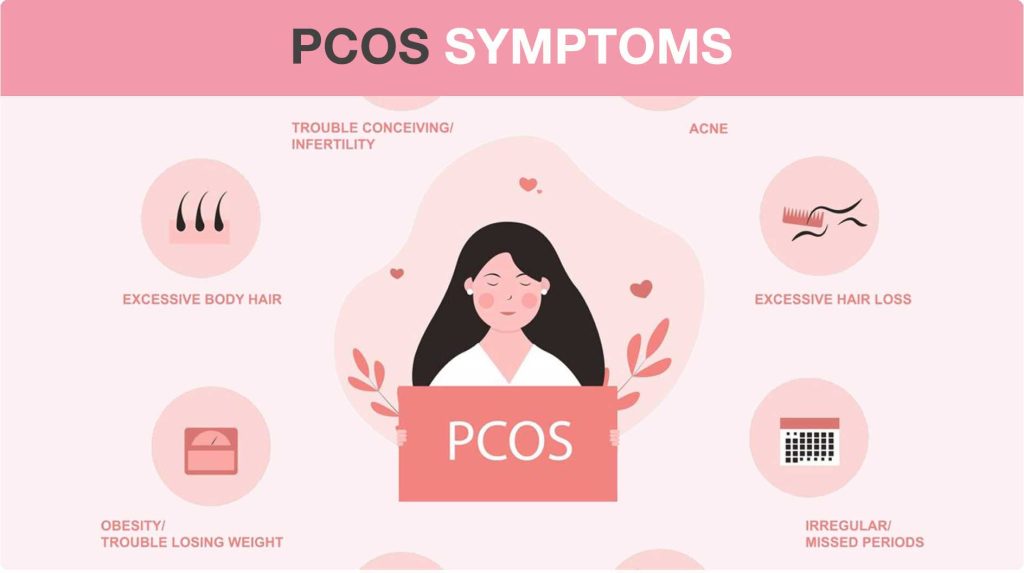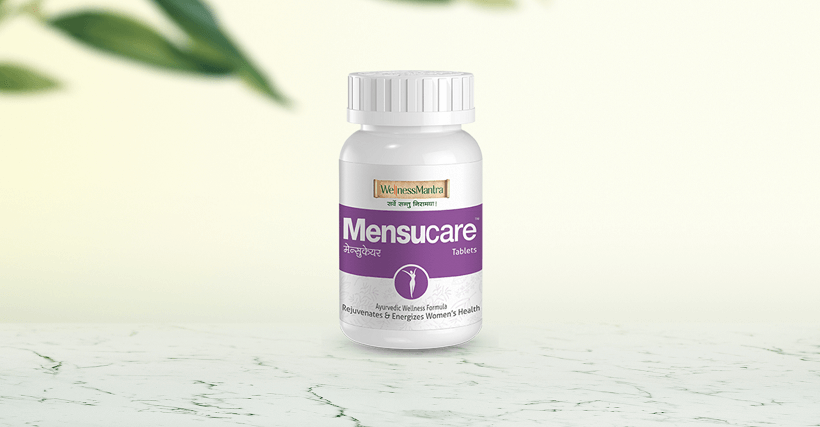Young women have to combat a lot of syndromes owing to hormonal changes. These hormonal disorders are of various kinds and one of them is PCOS.
What is PCOS?
PCOS also known as Polycystic Ovary Syndrome is a hormonal disorder which is common amongst women of reproductive age. Women with PCOS might have infrequent or prolonged menstrual periods or excess of male hormone levels known as androgen levels. The ovaries may develop numerous small collections of fluid and also fail to regularly release eggs. While the exact cause of PCOS is unknown, early diagnosis and treatment along with weight loss may reduce the risk of long-term complications.
Symptoms of PCOS:
Signs as well as symptoms of PCOS often develop around the time of the first few menstrual cycles during puberty, and sometimes it develops later like in instances of response to substantial weight gain.
Signs and symptoms of PCOS vary from person to person, however these are the most common symptoms:
#1 – Irregular Periods:
Irregular, infrequent or prolonged menstrual cycles are the most common signs of PCOS. For instance you might have fewer than 9 periods a year, more than 35 days between periods and sometimes, abnormally heavy periods as well.
Also Read: Ayurvedic Medicine For Female Infertility
#2 – Excess Androgen:
Higher or elevated levels of male hormones may result in physical signs such as excess facial and body hair known as hirsutism and occasionally severe acne and male-pattern baldness.
#3 – Polycystic Ovaries:
When having PCOS, your ovaries might be enlarged and contain follicles that surround the eggs. As a result of this, the ovaries might fail to function regularly.
These signs and symptoms of PCOS are typically more severe if you are obese.
Although Ayurvedic treatment of PCOS may vary among practitioners, it involves the use of specific primary herbs to maintain a balance of hormones such as:
Ashwagandha: Ashwagandha is a herb that is called Indian ginseng or winter cherry. It can help in balancing the cortisol levels to improve stress and PCOS symptoms. According to a study of 2016 of 52 people as subjects, Ashwagandha cured a majority of the patients suffering from chronic stress.
Cinnamon: Harvested from the bark of the Cinnamon tree, cinnamon is more than just a spice used in baked goods or curries. According to a study, it can positively affect insulin resistance parameters in PCOS. Cinnamon plays an important role in regulating menstrual cycles for women with PCOS.
Turmeric: Turmeric gets its yellow pigment colour from an active ingredient called curcumin. Curcumin studies on animals and humans have showcased promises of anti-inflammatory agent, as a way to decrease insulin resistance.
Here are some frequently practiced yoga Sana’s or therapies also known as asanas to help combat PCOS:
- Reclining Butterfly Pose
- Bharadvajasana
- Chakki Chalasana
- Shavasana
Your practitioner can also recommend meditation and breathing exercises known as pranayama’s to help relieve stress.
Ayurvedic Diet for PCOS:
Dietary changes and practices according to the way of Ayurveda are highly effective. These might include:
- Eating less saturated fats such as deep fried foods
- Reducing your salt intake if you tend to put more in food than required
- Consuming more fruits, vegetables, and whole grains
- Avoiding refined sugar and foods that contain sugar
Also Read:
Ayurvedic Supplements for PCOS:
Mensucare tablets, a wonderful offering from Wellness Mantra is an ayurvedic formulation prepared to care for the modern female. Made by translating ages-old Ayurvedic knowledge, it helps to restore hormonal balance, build haemoglobin levels, regulate the menstrual cycle and reduce discomforts associated with it, while lowering stress levels.
Mensucare tablets is a potent concoction of 27 most relevant and effective herbs, some of them being Ashoka, Shatavari, Lodhra, Gokshur, Nagkesar and Mandur Bhasma, that together combine ensuring her health remains as high as her ambitions and dreams.


